- Learning time
- 90 minutes
- First play time
- 220 minutes
Eclipse
Designed by: Touko Tahkokallio
Opening the box of Eclipse can be a bit daunting the first time. It will take you a good half an hour or more to pop the cardboard pieces and get everything organised into piles – there are over 900 pieces in the game and for rule-shy gamers who baulk at instruction books, there may be a giddy sensation upon opening the 30-plus pages guiding you through the universe of the game.
But fear not. If you’re willing to put in the time in, the patterns of the game will start to emerge, and you will realise that at its heart Eclipse is a game of a few simple moves around which much decoration (the many, many bits) give degrees of variation to each player.
Eclipse has a modular board made of hexagon-shaped tiles – each player starts on a home hexagon, one tile-distant from a central hex. These hexes represent the galaxy, and the players different factions within it, who start the game in an uneasy truce. The rules are too numerous to go through in any depth here, but during play you’ll be exploring the galaxy, building spaceships, upgrading their component parts, improving your technologies, and – you probably guessed – blowing things up too.
Dotted around space are the vestiges of an ancient people who will defend the planets you’re trying to colonize, so if you encounter them on your travels you may be forced to do battle. – You can also attack other players and nab their planets for yourself.
But as well as offering these options Eclipse also makes you balance your economy. You can only do as many moves as you can afford, and the more planets you populate the more stuff you can do, so throughout the game – certainly at the start – you’ll be trying to explore and expand in order to maximise your returns. The planets you settle are of three types and give you a particular return from them – money, science, or materials. How you choose to spend these is the game’s heart – more money gives you more freedom to do stuff, more science advances your ship and expansion abilities, and more materials allows you to build more spaceships – great if you’re going a combative route.
As the game progresses the multitude of cardboard chits begin to make sense. There are three types of technology and only when you have built a certain type can you get a certain upgrade for your spaceships. They can be customised in any way you like – loaded with guns, or less gun-heavy but more impervious to damage – or even fast and flighty.
Exploring space not only gives you the returns mentioned above it also provides you with a discovery tile, which could be any one of a number of benefits.
Play continues for nine rounds, and with more players especially it can become quite combative toward the end as they fight for spoils! Points are awarded for hexes under your control and points gained from battle – both winner and loser get points shields from a bag (random, between 1-4) for taking part, and destroying a ship also gets you another shield. Most points after nine rounds wins.
The guru's verdict

-
Take That!
Take That!
Early on the game is more explorative and peaceful, but the likelihood of not being attacked over the whole nine rounds is pretty low.
-
Fidget Factor!
Fidget Factor!
If all players know what they are doing, Eclipse moves fast.
-
Brain Burn!
Brain Burn!
We've put complexity 4 because Eclipse just comes with so much to learn on a first play. But if you can get past that first-play bump and establish a bit of familiarity with the rules, it doesn't actually demand a huge amount of your brain - it's much lighter than chess, for instance.
-
Again Again!
Again Again!
How much time do you have? There is a massive amount of variation built into Eclipse, from the different peoples to the different technologies and the randomness of tiles drawn and dice thrown (in combat). If you get a bunch of people who like the theme and don't mind a bit of a learning process, Eclipse will really reward.

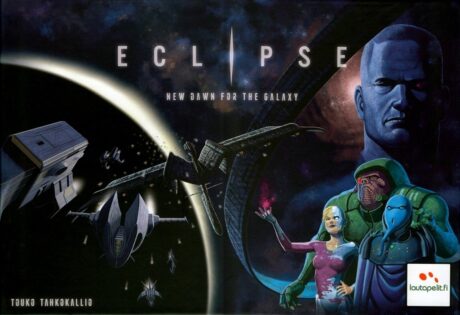
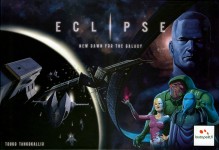
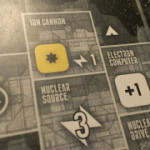
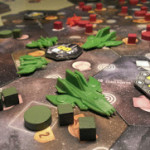
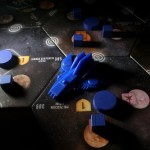



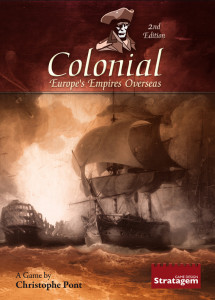
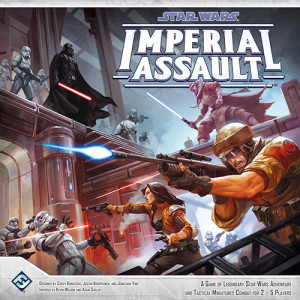
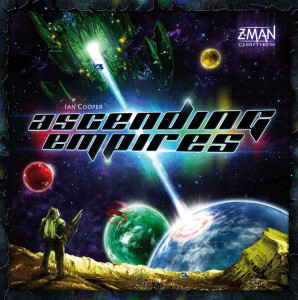
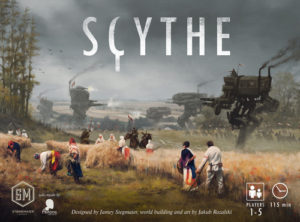
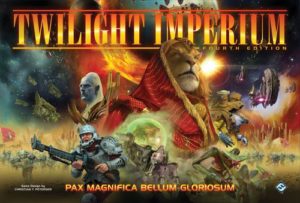
Sam says
Every now and then it's nice to break open a game that feels like a real adventure; one that sees you explore, expand, exploit, and exterminate - commonly referred to by gaming enthusiasts as 4X games for that reason. Eclipse is just one of many such games, but as table and time-hogging games go, it's one of the best - the rules feel like they make sense, the game feels immersive, and there are different strategies available: you can be nakedly aggressive, cagily defensive, exploratory and evasive, or a mixture of different angles. Learning the rules took me an entire Sunday afternoon - thankfully a rainy one - and is best done by laying everything out and actually playing it (which I did with an impressively patient 6-year-old!). Because it demands so much time I don't play it often, but I rate the game very highly indeed.